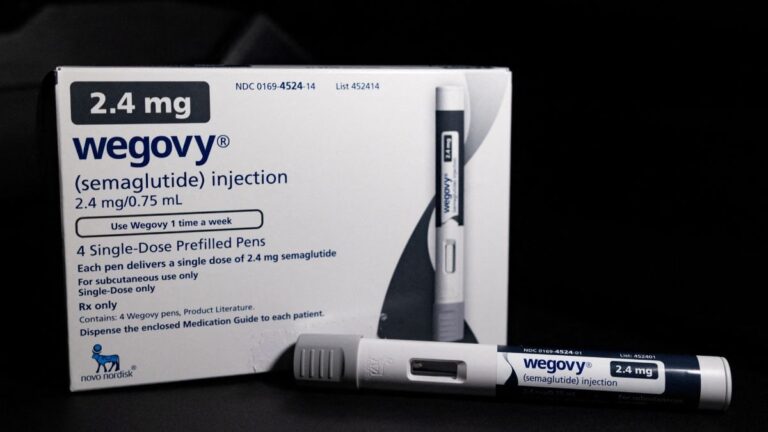Polycystic Ovary Syndrome is rising among Indian women, especially in urban areas. This article explores its symptoms, diagnostic challenges, and how new tools like the AMH+ test offer accurate, non-invasive early detection—empowering women to manage their reproductive health more effectively and proactively.
read more
Polycystic Ovary Syndrome (PCOS) has emerged as one of the most prevalent hormonal disorders affecting women of reproductive age. Recent studies, including one published in the Journal of the American Medical Association (JAMA), estimate that PCOS affects between 7.2 per cent to 19.6 per cent of Indian women with higher prevalence seen in urban populations.
The condition, characterised by hormonal imbalance and metabolic issues, can lead to a range of symptoms, from irregular periods and weight gain to acne, excessive hair growth and infertility.
Firstpost talked to Dr. Rishma Pai, an honorary consultant Gynaecologist at the Lilavati, HN Reliance Hospital and Hinduja Hospitals (Mumbai) to understand the growing burden of PCOS in India, the diagnostic challenges women face and how new tools like the AMH+ test are transforming early detection and management.
The Rising Tide of PCOS in India
Dr Rishma: Urbanisation, sedentary lifestyles, poor dietary habits, and increasing stress levels have all contributed to the rising prevalence of PCOS in India. Coupled with low awareness and stigma surrounding reproductive health, many women either ignore the signs or seek medical attention too late. PCOS is not just a reproductive issue if left unmanaged, it can increase the risk of type 2 diabetes, cardiovascular disease, and endometrial cancer.
The Diagnostic Dilemma
Dr Rishma: PCOS is often diagnosed using the Rotterdam criteria, which require at least two of the following three features: irregular or absent periods, signs of high androgen levels (clinically or through lab reports), and polycystic ovaries on ultrasound. However, this process can be prolonged and inconsistent. Many women go undiagnosed for years, which delays treatment and worsens their overall health outcomes.
Common Challenges Faced by Women
-
Delayed or missed diagnosis due to lack of awareness
-
Discomfort with transvaginal ultrasounds, especially for unmarried women
-
Mismanagement of symptoms, often treated in isolation (e.g., only acne or only irregular periods)
-
Mental health toll due to chronic stress, infertility struggles, and body image issues
-
Diagnostic Tests Available for PCOS in India
While we talk about it, there are a range of diagnostic tests available in India. These include:
Ultrasound Scan (Pelvic or Transvaginal Ultrasound)
Used to detect the presence of multiple small follicles on the ovaries, which gives the condition its name.
Often done on Day 2 or 3 of the menstrual cycle.
May not be preferred by or suitable for all women, especially those who are unmarried.
Hormone Blood Tests
These measure levels of testosterone, LH (Luteinizing Hormone), FSH (Follicle-Stimulating Hormone), and prolactin.
Elevated androgens or a high LH:FSH ratio can indicate hormonal imbalance typical of PCOS.
Glucose and Insulin Resistance Tests
Includes fasting glucose, insulin levels, and HbA1c to check for insulin resistance or prediabetes. Insulin resistance is a common but under-recognized reason behind PCOS.
AMH+ Test (Anti-Müllerian Hormone)
A simple blood test that measures AMH levels to evaluate ovarian reserve and function. High AMH levels are associated with PCOS as they reflect the increased load of antral follicles. Therefore, AMH+ is an important indicator to identify PCOS. While there are other AMH tests available in India from different manufacturers, the AMH+ test developed by Roche Diagnostics is the first DCGI-approved diagnostic tool for PCOM in aiding the diagnosis of PCOS in India. It is also CE-marked in Europe, reinforcing its global and regulatory credibility.
Unlike traditional diagnostic methods like transvaginal ultrasound, which must be timed with the menstrual cycle and can be invasive, AMH+ can be conducted on any day of the cycle, offering a more convenient, accessible, and non-invasive option. It is the most accurate and reliable test available to diagnose PCOS.
Thyroid Function Tests and Lipid Profile
Thyroid dysfunction and lipid imbalances are commonly associated with PCOS. These tests are crucial in evaluating broader metabolic impacts and ruling out other conditions that mimic PCOS symptoms.
Timely and accurate diagnosis is the first step in managing PCOS effectively. With newer diagnostic tools like the AMH+ test, combined with clinical insights and lifestyle guidance, women can take proactive control over their reproductive health.





















